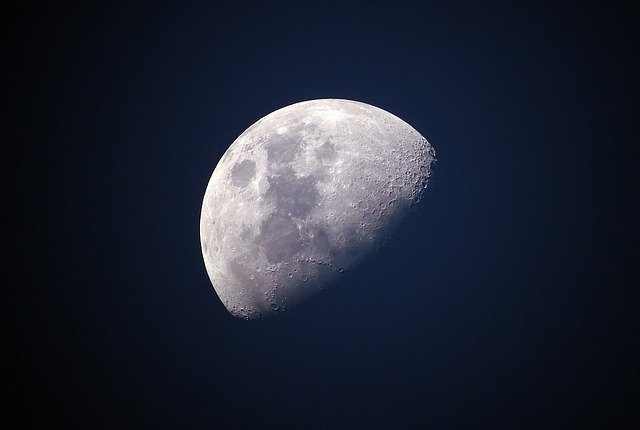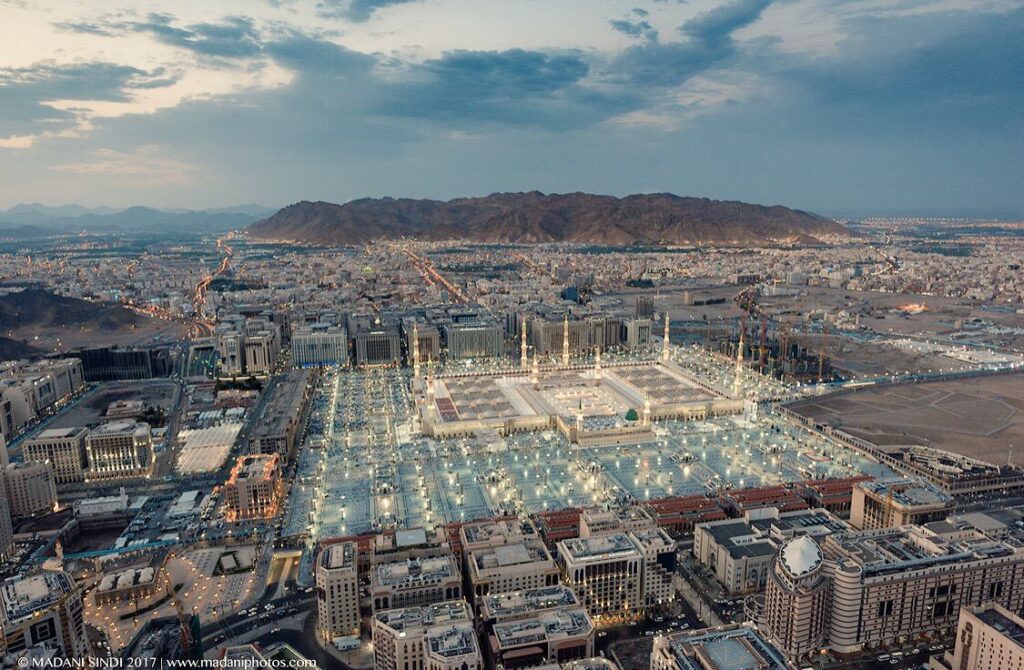The Islamic calendar has 12 months as informed by Allah, who has made four especially sacred and important: Dhul Qa’dah, Dhul Hijjah, Muharram and Rajab. The Islamic months, each with its own meaning, follow the lunar calendar, which means the year is based on the sighting of the moon and a month is around 29.5 days.
Islamic calendar follows the moon
That makes the lunar year about 10 days shorter than the Gregorian year and means the Islamic year is not fixed to any seasons.
Islamic months list in order
Muharram, Safar, Rabi’ul Awwal, Rabi’ul Akhir, Jumaad al Oola, Jumaad al Akhir, Rajab, Sha’baan, Ramadan, Shawwal, Dhul Qa’dah, Dhul Hijjah

Praise is to Allah who has created time and has made some times better than others as a mercy to His slaves. Virtually every religion has a sacred time of year, we live in time and use time to express our religious beliefs.
Although Islam instructs its followers to be always in touch with God, praising and glorifying Him on all occasions, there are specific dates in the calendar where the spiritual reflection and special attention is emphasized. Here we shall look at each month, the Sunnah practices of the Prophet (SAW) in them and any events pertaining to them in Islamic history or tradition.
What are the names and meanings of Islamic months?
Hijrah is the name given to the migration of the Prophet (SAW) from his birthplace Makkah to the city of Madinah and the Islamic calendar starts from this point.
1. Muharram
Muharram is the month with which the Muslims begin their lunar Hijri calendar. It is derived from the word forbidden as fighting is forbidden in this month.
The month of Muharram has certain other characteristics peculiar to it which are:
Fasting during this Islamic month
The Prophet (SAW) has said: ‘The best fasts after the fasts of Ramadhan are those of the month of Muharram.’
Although these fasts are not obligatory, the one who fasts out of his own choice is entitled to a great reward by the Almighty.
The day of Aashurah.
The 10th day of Muharram is the most sacred among all its days. According to Ibn Abbas (RA), when the Prophet migrated to Madinah, he found that the Jews fasted on the 10th day of this month. They said it was on this day that Prophet Musa (AS) and his followers crossed the Red Sea and Pharoah was drowned while chasing them. On hearing this, the Prophet (SAW) said: ‘We are more closely related to Musa than you’ and directed the Muslims to fast on the day of Aashurah. According to another hadith, it is more advisable to fast one day before or one day after the 10th as well.
In terms of events in this month, it is narrated from Anas (RA) that the following verse was revealed on the 10th of Muharram:
‘That Allah may forgive for you what preceded of your sin and what will follow and complete His favor upon you and guide you to a straight path.’
Quran [48:2]
2. Safar
The second month in the Islamic calendar it is so named because Arabs of that area used to leave their homes during that month for fighting and travelling. When saying ‘Safir’ a place, it means to leave it.
No specific mode of worship or other special rules are set by the Shariah to observe in this month.
In terms of events, the Battle of Abwaa and Khaibar are said to have taken place in this month, although in different years.
3. Rabi’ul Awwal
Meaning the first Spring, it is in this month humanity was blessed by the birth of the Prophet (SAW). It is also in this month that he departed from this world.
It is an ideal time to concentrate one’s efforts upon and emphasise the importance of lectures wherein the lifestyle of our Prophet (SAW) is discussed. Spend time to learn about his life, although it is not the only month that this should be practiced in.
4. Rabi’ul Akhir
Meaning the last Spring.
In this fourth month of the calendar, no specific function or worship has been prescribed.
5. Jumaad al Oola
One meaning for this name is given as being the first month of parched land.
The Ahaadith (sayings of the Prophet SAW) prescribes no special action to be practised during this month nor are there any specific customers practised by the Muslim people in these months.
In terms of events, the Battle of Muta took place in 8AH in Jumaad al Oola. It is in this battle that Khalid ibn Walid (RA) was proclaimed by the Prophet (SAW) as being ‘one of the swords of Allah.’
6. Jumaad al Thani
The second month of ‘parched land’ is one of the meanings given for the month.
7. Rajab
Meaning ‘to respect’ this is one of the four sacred months referred to in the Quran and when Muslims should start preparing for the coming of Ramadan.
With the coming of this seventh month, Rasulullah (SAW) used to make the following supplication:

Translation: O Allah make (the months) of Rajab and Sha’baan blessed for us and let us reach (the month of) Ramadhan.’
It was in this month that Me’raj (Ascension of the Prophet to the heavens) took place and he was given the gift of Salaah. It is also in this month that the Battle of Tabuk took place in the year 9AH. This was the last battle which the Prophet (SAW) participated in.
8. Sha’baan
The meaning of the word is ‘consecutively escalating or undisturbed increase.’ Upon the arrival of this eighth month, begins the showering of numerous blessings which progressively escalate so that by mid-Sha’baan the blessings reach a considerable amount and go on increasing until the end of the next month.
Our souls should be geared by the presence of this month’s blessings preparing us for a fruitful and successful Ramadan. The Prophet (SAW) has said: ‘Sha’baan is my month and Ramadhan the month of Allah.’
Of the important dates in this month is the ‘Night of forgiveness’ occurring on the fifteenth night. There are many hadiths regarding this night of which one follows:

The migration took place in this month to Madinah. Other events include the appointment of Abu Bakr (RA) as the Khalifah (leader of the believers).
Mu’adh ibn Jabal (RA) reported: The Prophet (SAW), said, “Allah looks down at his creation on the middle night of Sha’baan and he forgives all of his creatures, except for an idolater or one harboring hatred.” (Ibn HIbban)
9. Ramadan
The ninth month of the calendar is the most meritorious of the whole year and is widely known for the full month of fasting.
Salman (RA) narrates that the Prophet (SAW) delivered a sermon on the last day of Sha’baan saying: ‘The Prophet said, “O people! A great and blessed month has arrived for you. A month in which there is a night which is better than one thousand months. Fasting during this month is an obligation, and the extra prayers during its nights are voluntary. Anyone who comes closer to Allah through a good deed during this month is as if he performed an obligatory duty during times other than Ramadhan, and he who fulfils an obligatory duty in it will be like one who fulfils seventy obligatory duties in another month. It is the month of patience, and the reward of patience is Paradise.
It’s the month of the visiting of the poor, the sick and the needy so as to share their sorrows and the month where the nourishment, the sustenance and the income of the believing Muslim increase and they are blessed. Anyone who invites others to break their fast at Iftar will be provided with forgiveness of his sins and be saved from hellfire, and will receive reward equal to the fasting person without reducing his own reward in any respect….’
Why is fasting considered so important?
Although all practices of worshipping are for Allah, here Allah singles our fasting because it cannot be practised for the sake of showing off, as nobody except Allah can know whether one is fasting or not. So fasting is a pure performance that cannot be blemished with hypocrisy.
The month of Ramadhan is in which the Quran was revealed. Allah chose it to send down the Quran, just as He did for all the divine Books He revealed to His Prophets. According to the Tafseer (commentary) of ibn Kathir, he mentions a report of the Prophet (SAW) saying: ‘The Suhuf (pages) of Ibrahim were revealed during the first night of Ramadhan. The Torah was revealed during the sixth night of Ramadhan. The Injil (Gospels) were revealed during the thirteenth night of Ramadhan. Allah revealed the Quran on the twenty fourth night of Ramadhan.
How to Spend Ramadhan?
Ramadhan is meant for annual renovation of the inner spiritual qualities. It is a golden opportunity for every Muslim to strengthen his/her faith, to purify his heart and to remove the evil effects of the sins committed by him. It invites a Muslim to minimise his other mundane involvements and maximise the acts of worship, whether by increasing voluntary prayers, reciting of the Quran, increase in charity-giving etc.
10. Shawwal
Shawwal is the tenth month, possibly named after the time of year when female camels would be pregnant with calves.
It is considered the first of the ‘hajj’ months even though the actual days of the hajj rites are more than two months later. The first day of Shawwal is the celebration day of Eid-ul-Fitr and also the day when sins are forgiven. It is Sunnah to keep six fasts in this month.
Events:
The Battle of Uhud took place in this month in 3AH. Also one year earlier, was the fight against the Banu Qaynuqaa.
11. Dhul Qa’dah
It is the first of the four sanctified months from the Islamic months, in which battles were prohibited in the days of the Prophet (SAW). A possible meaning is ‘one of sitting or truce’ rather than going out to fight.
Events: The Battle of Khandaq (trench) or Ahzab took place in 5AH. Also the Truce of Hudaybiah occurred in this month of 6AH. The Return to Makkah for the performance of Umrah by the Prophet (SAW) and his Companions was in 7AH.
12. Dhul Hijjah
The 12th and last month of the Islamic calendar, which means the month of Hajj (Pilgrimage). The Hajj is the fifth ‘Pillar’ of Islam and is performed in this month. The first ten days are the most virtuous in this whole month and the Hajj rites are performed within these ten days.
Abu Hurairah (RA) reports the Prophet (SAW) said: ‘Amongst all days there are none better to engage in sole worship of Allah than in the ten days of Dhul Hijjah. To observe a fast on any of these days is equivalent to fasting throughout the year. To actively engage in prayer and worship throughout any of these nights hold such rewarding values levelling with the ‘Night of Power’. (Tirmidhi)
Events: The Prophet (SAW) performed the farewell Hajj and gave the historic sermon known as the ‘Farewell Sermon’.
Uthman (RA) was appointed the third Caliph in this month.
Both Umar (RA) and Uthman (RA) were martyred in this month in different years.
May Allah grant us the ability to utilize our time effectively throughout the blessed Islamic months.
The four sacred months in Islam
‘Indeed, the number of months with Allah is twelve [lunar] months in the register of Allah [from] the day He created the heavens and the earth; of these, four are sacred. That is the correct religion, so do not wrong yourselves during them. And fight against the disbelievers collectively as they fight against you collectively. And know that Allah is with the righteous [who fear Him].
Quran [9:36]
These four months, according to the authentic traditions are the months of Dhulqa’dah, Dhulhijjah, Muharram and Rajab. In the Tafsir of ibn Kathir, he mentions an author of a book collection who said that Muharram is so named to emphasise its sacredness. ‘This is because the Arabs would switch it around. One year they would say it was a sacred month, the following year they would say that it was not.’



